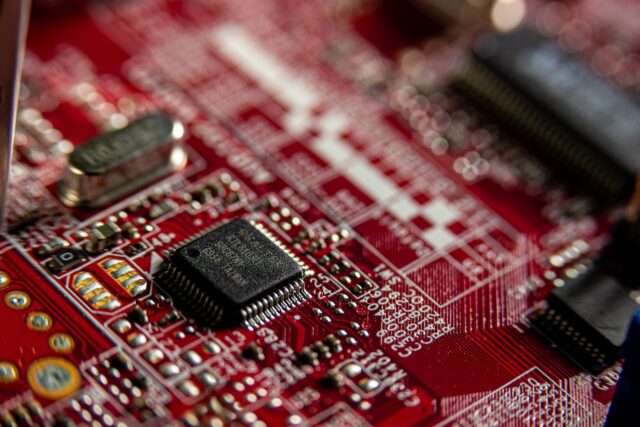The Biden administration’s sweeping new export controls announced Tuesday aim to restrict China’s access to advanced U.S. artificial intelligence chips.
According to an Oct. 18 Reuters report, the rules also provide potential lifelines for American semiconductor giants like Nvidia, Intel, and AMD to preserve aspects of their lucrative business selling AI chips to China.
While blocking sales of the most powerful AI accelerators and chips to China, officials at the U.S. Bureau of Industry and Security (BIS) indicated they are open to input from the industry on allowing the export of chips for small and medium-sized AI systems. BIS specifically raised the possibility of developing “tamperproof” technologies that could enable AI chips to be sold for systems comprised of up to 256 chips while preventing their use in massively scaled supercomputing platforms that raise national security concerns.
Attorneys say companies like Nvidia will likely quickly redesign products to comply with the 256-chip limit
This approach appears crafted to balance strategic aims to limit China’s AI capabilities while mitigating collateral economic impacts on U.S. firms. The rules aim to stop China from exploiting American AI chips to build supercomputers that could crack encryption, analyze surveillance data, and design advanced weapons. At the same time, they leave room for chipmakers to continue reaping revenues from China’s vast consumer and commercial AI chip markets.
Industry attorneys say companies like Nvidia will likely quickly redesign products to comply with the 256-chip limit and resume significant sales to China. This softening of the restrictions makes their expected business impacts more manageable.
In parallel, the new constraints on Chinese AI chip startups like Moore Threads and Biren remove major competitive threats to U.S. firms in serving the still-permitted Chinese markets. With emerging Chinese rivals hindered by the lack of access to advanced manufacturing equipment, Nvidia, Intel, and AMD are poised to dominate among suppliers cleared to export AI chips to China.
The Biden administration also closed potential loopholes by restricting the export of semiconductor manufacturing tools from companies like Nikon and ASML that contain any American-origin components. This limits China’s ability to produce its own advanced AI chips and sustain its semiconductor capabilities for the long-term.
Featured Image Credit: Photo by Sergei Starostin; Pexels; Thank you!











